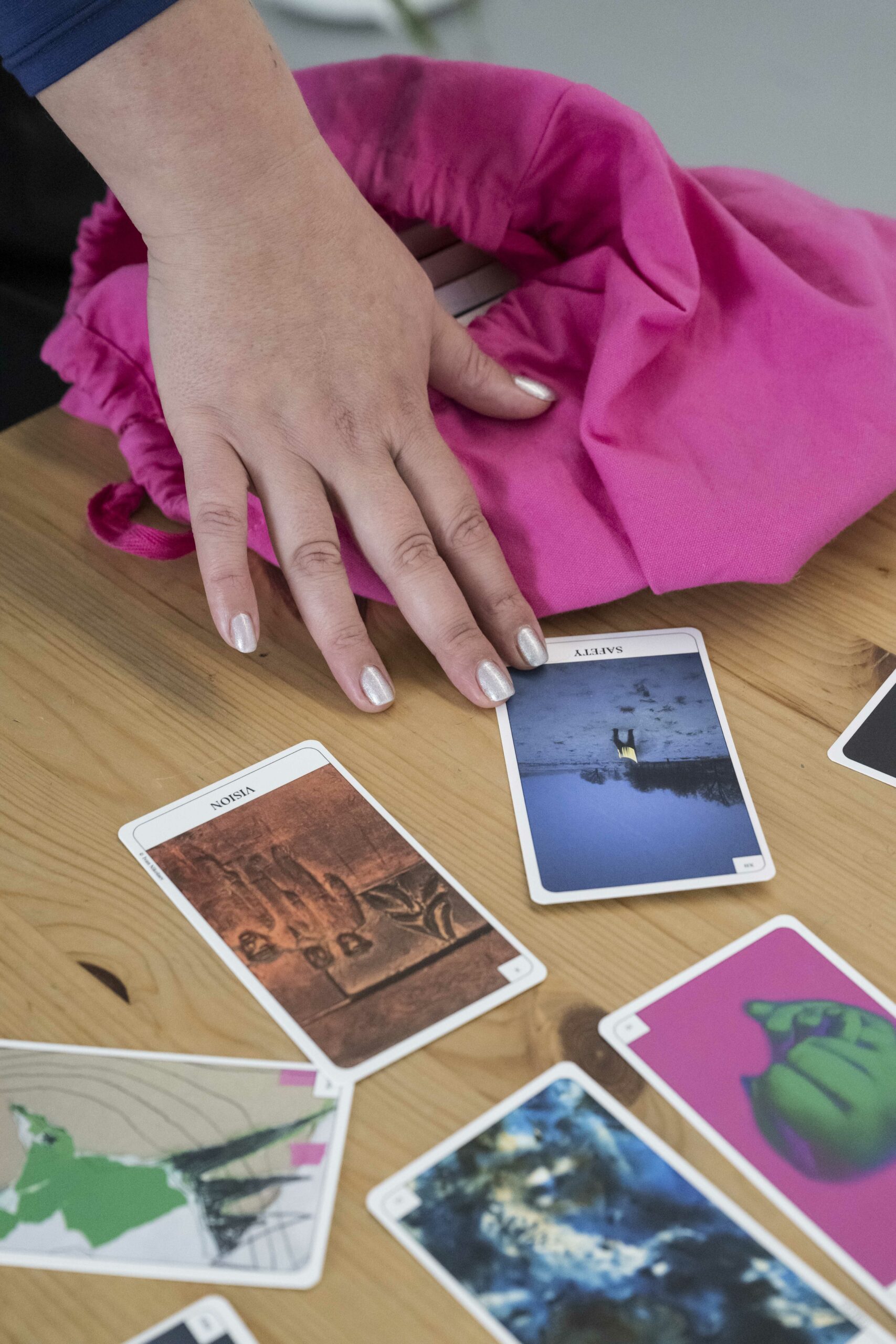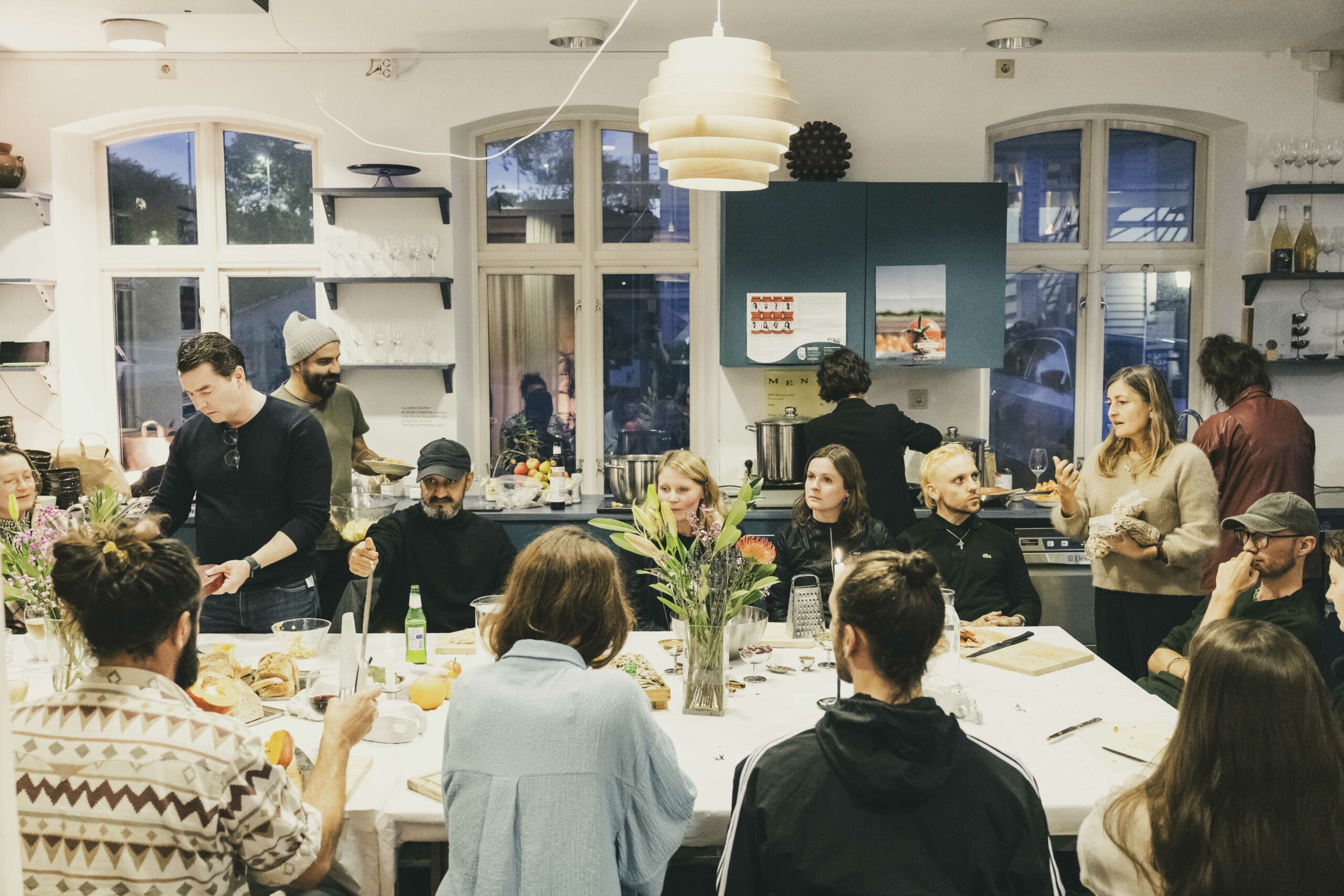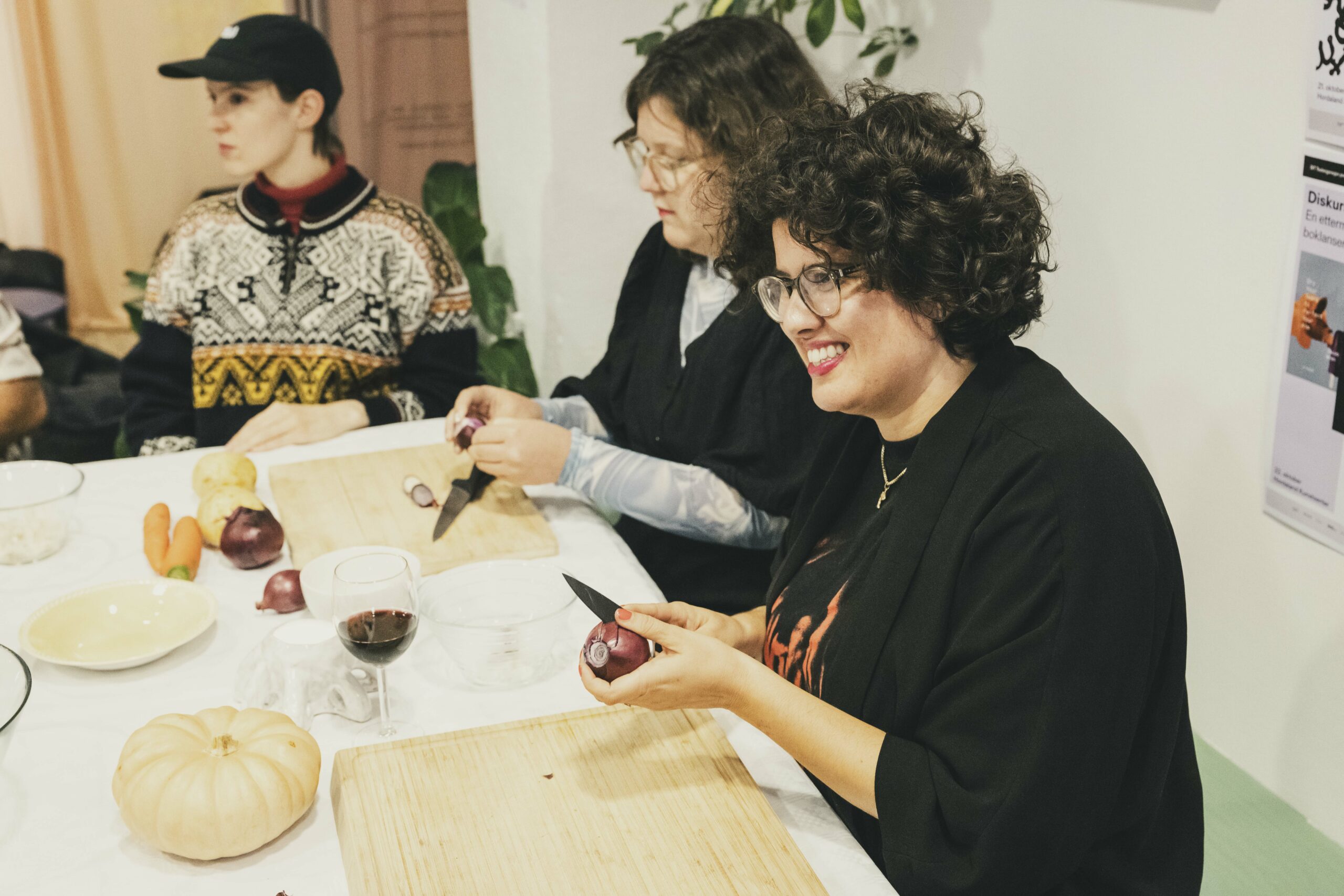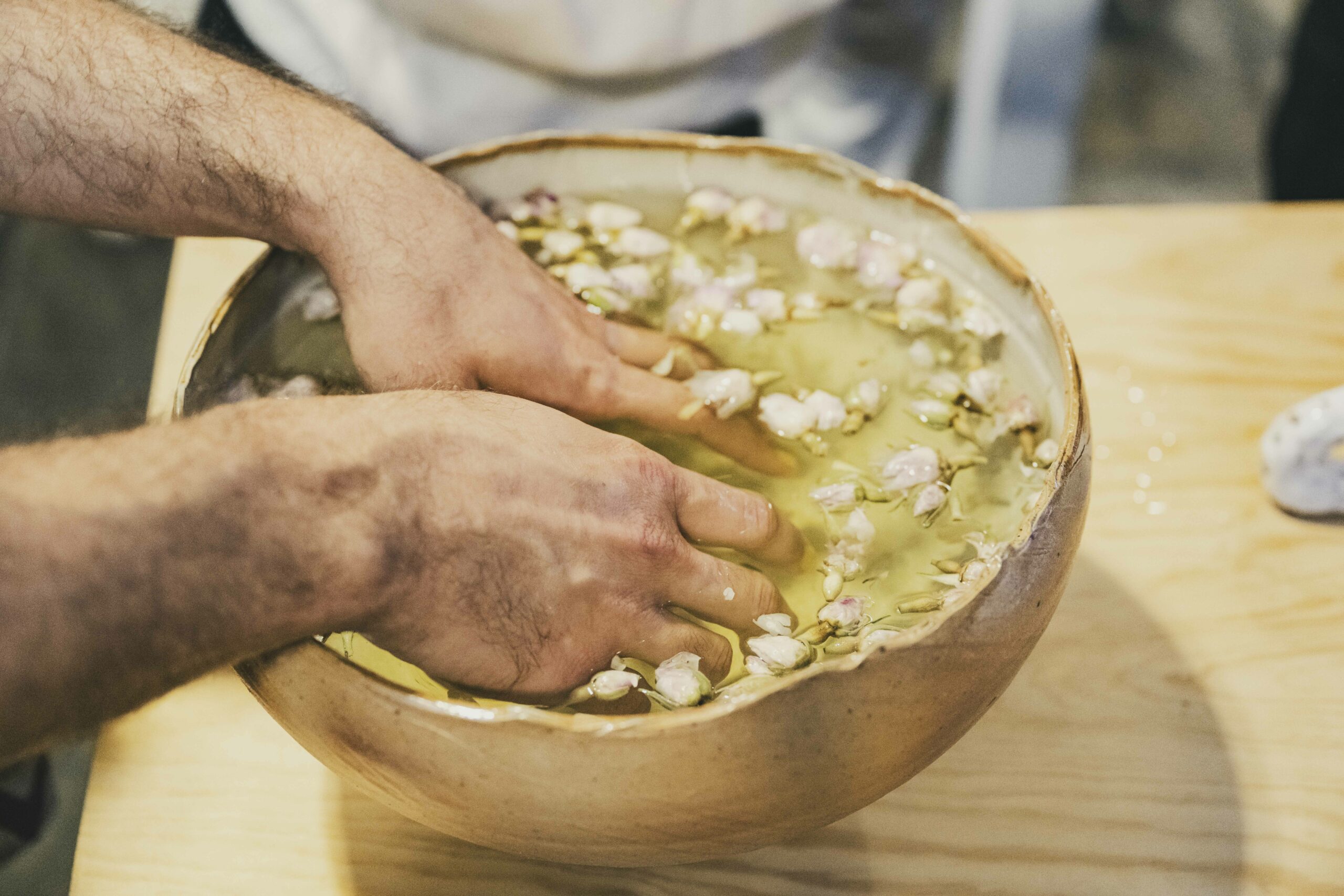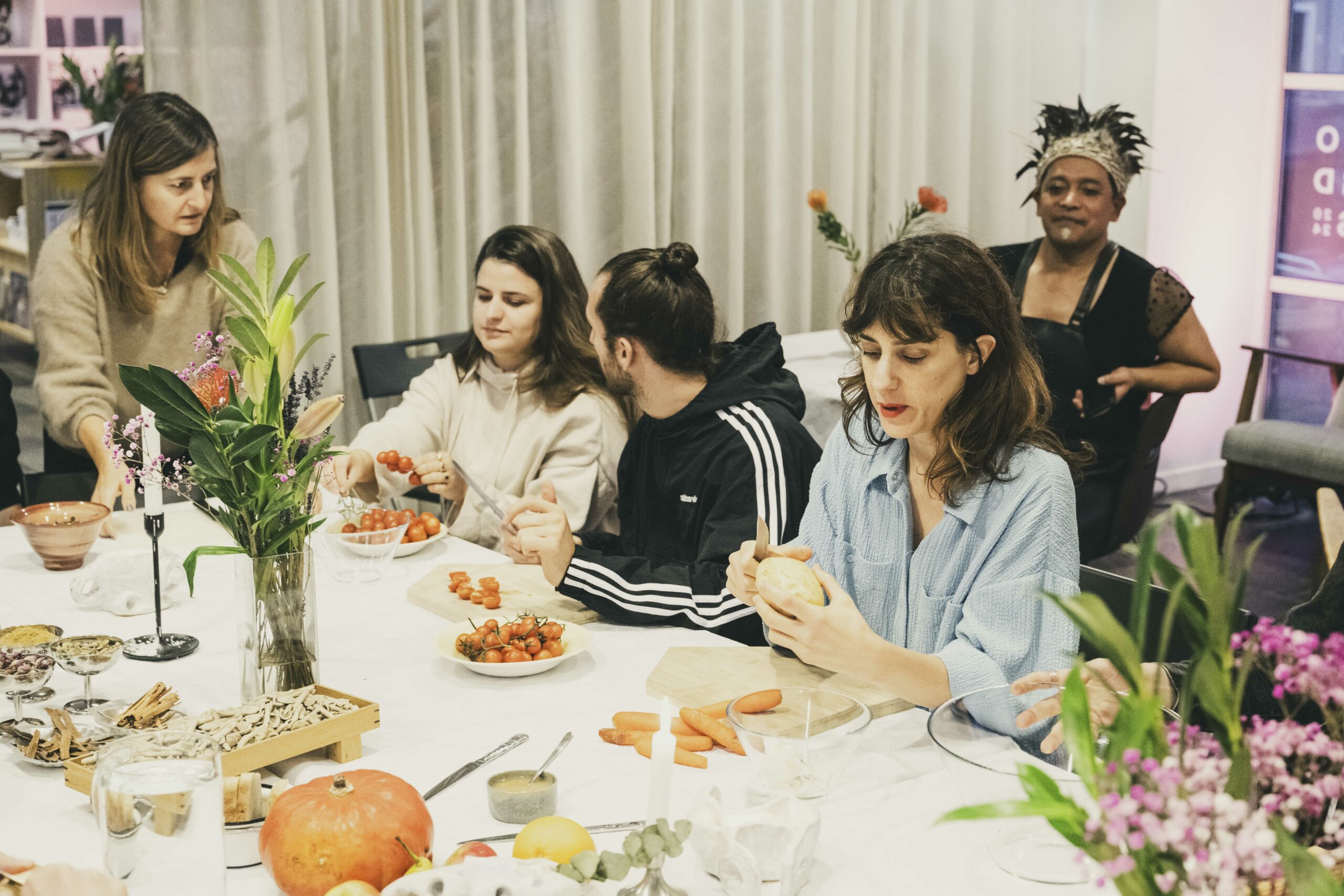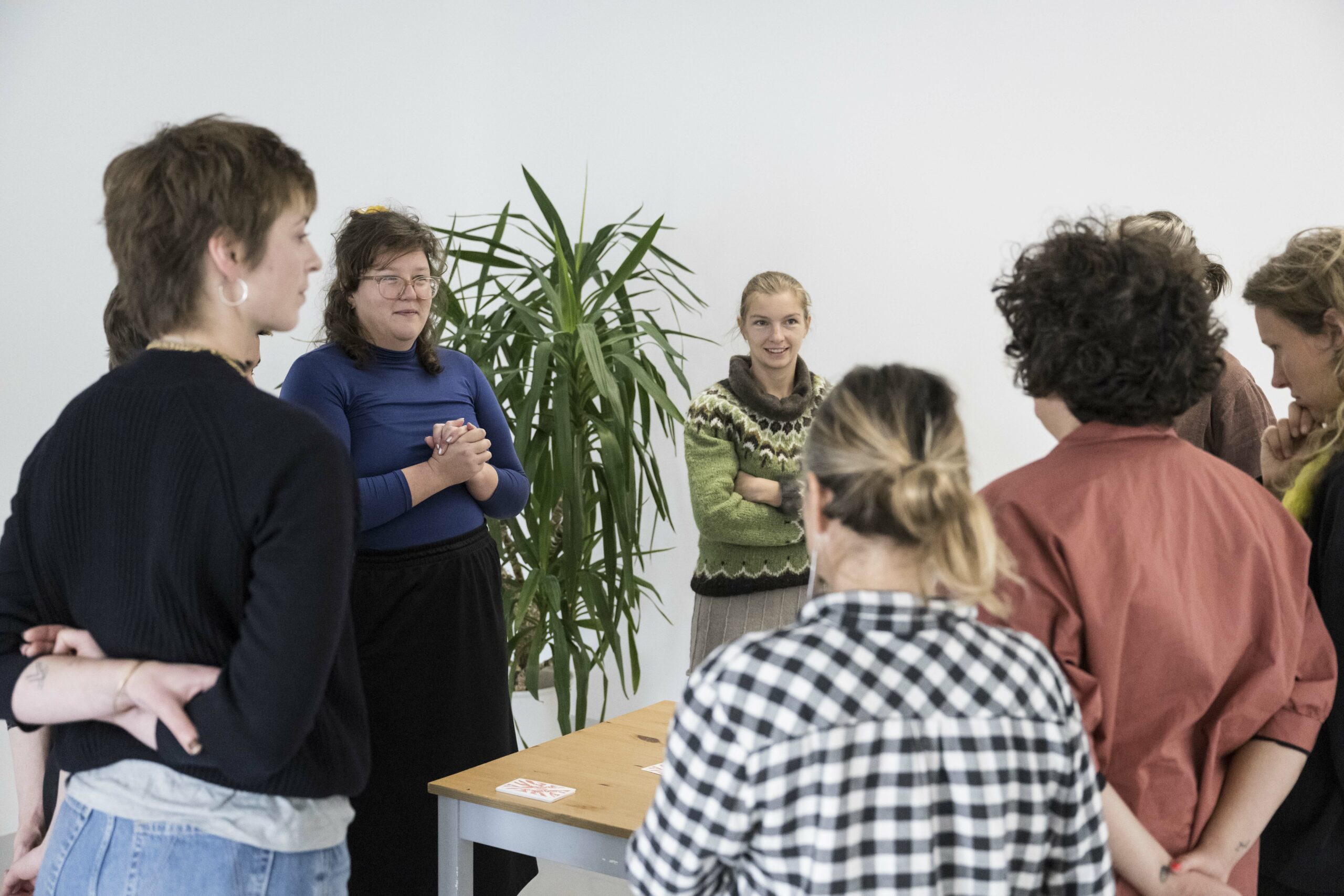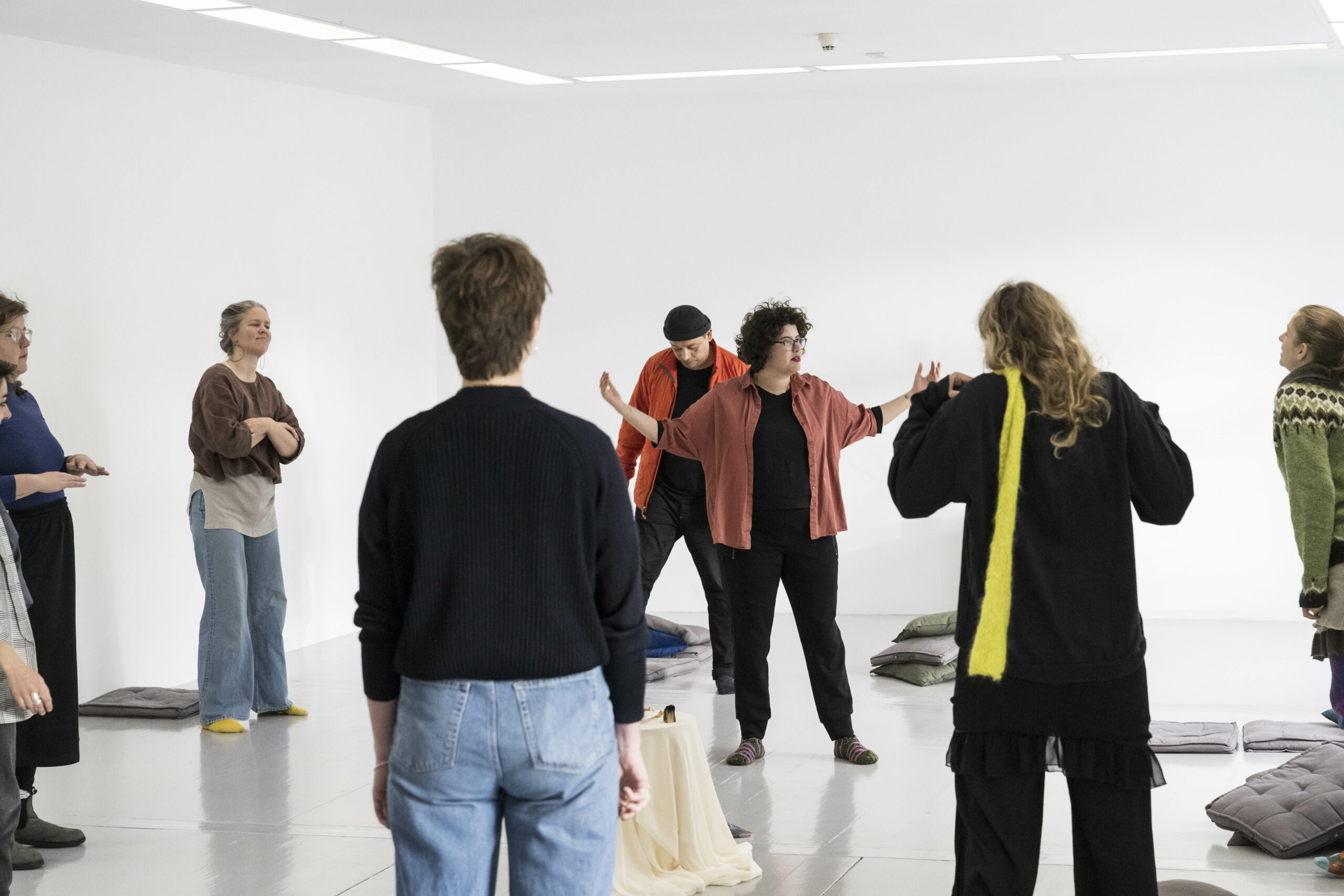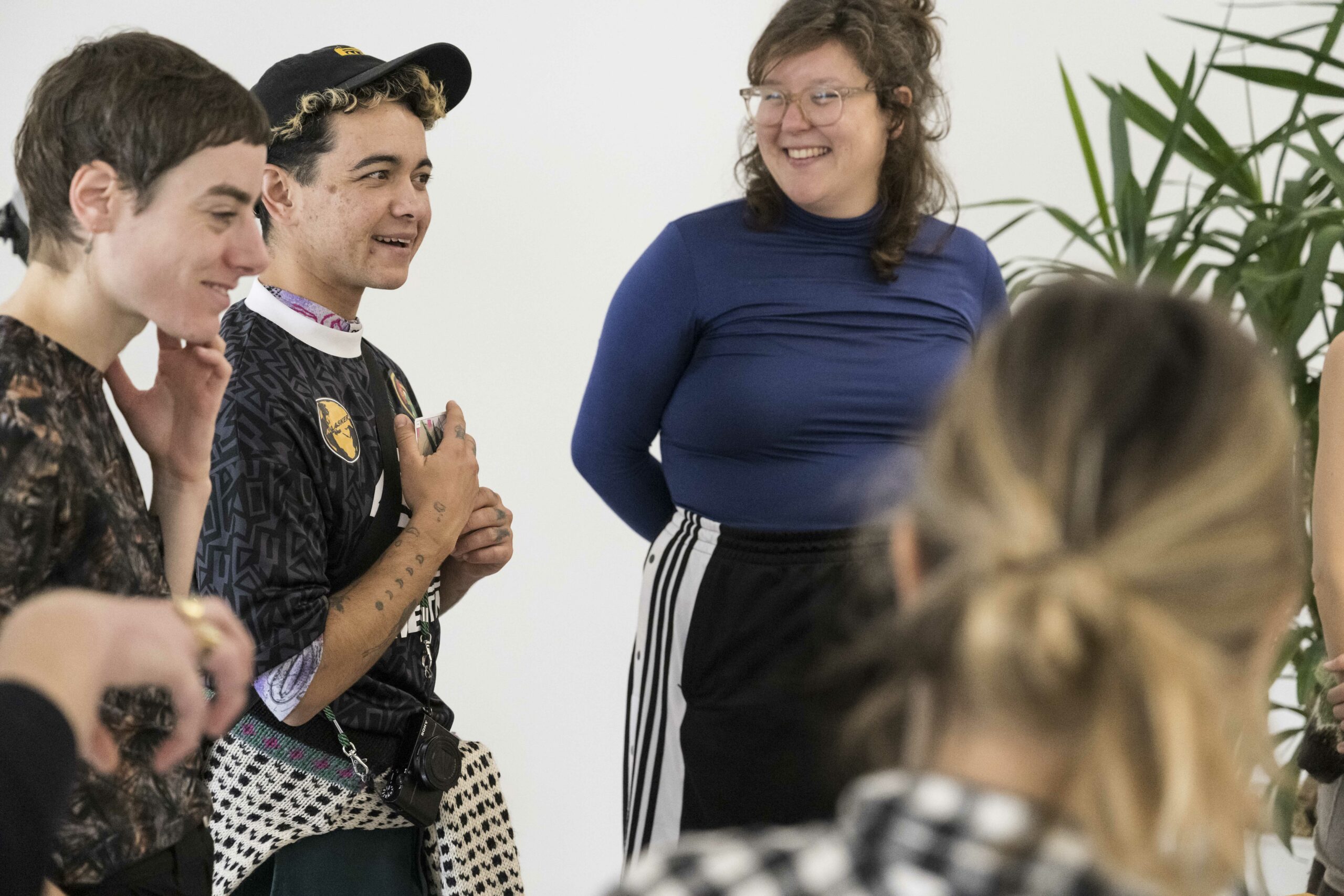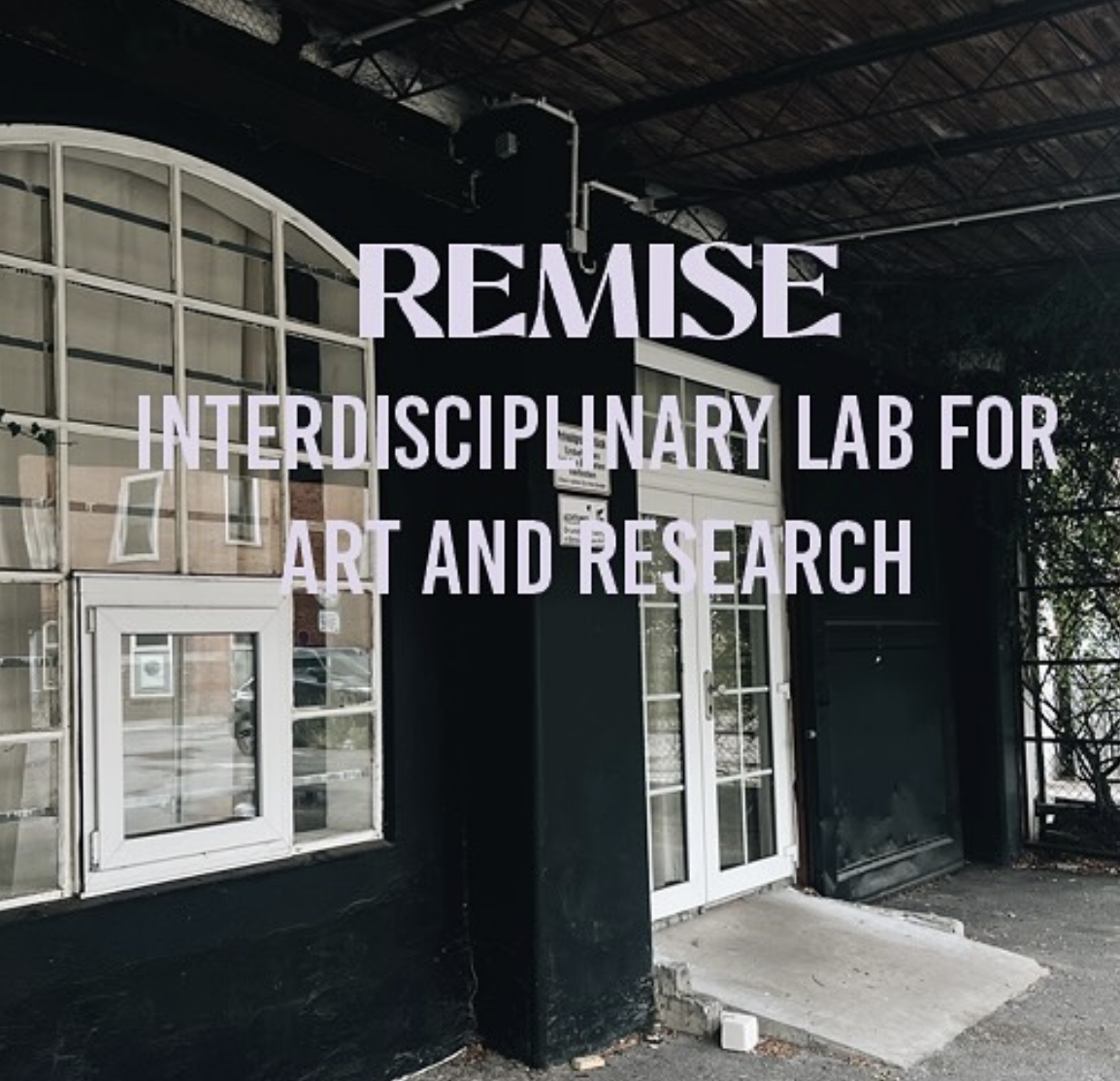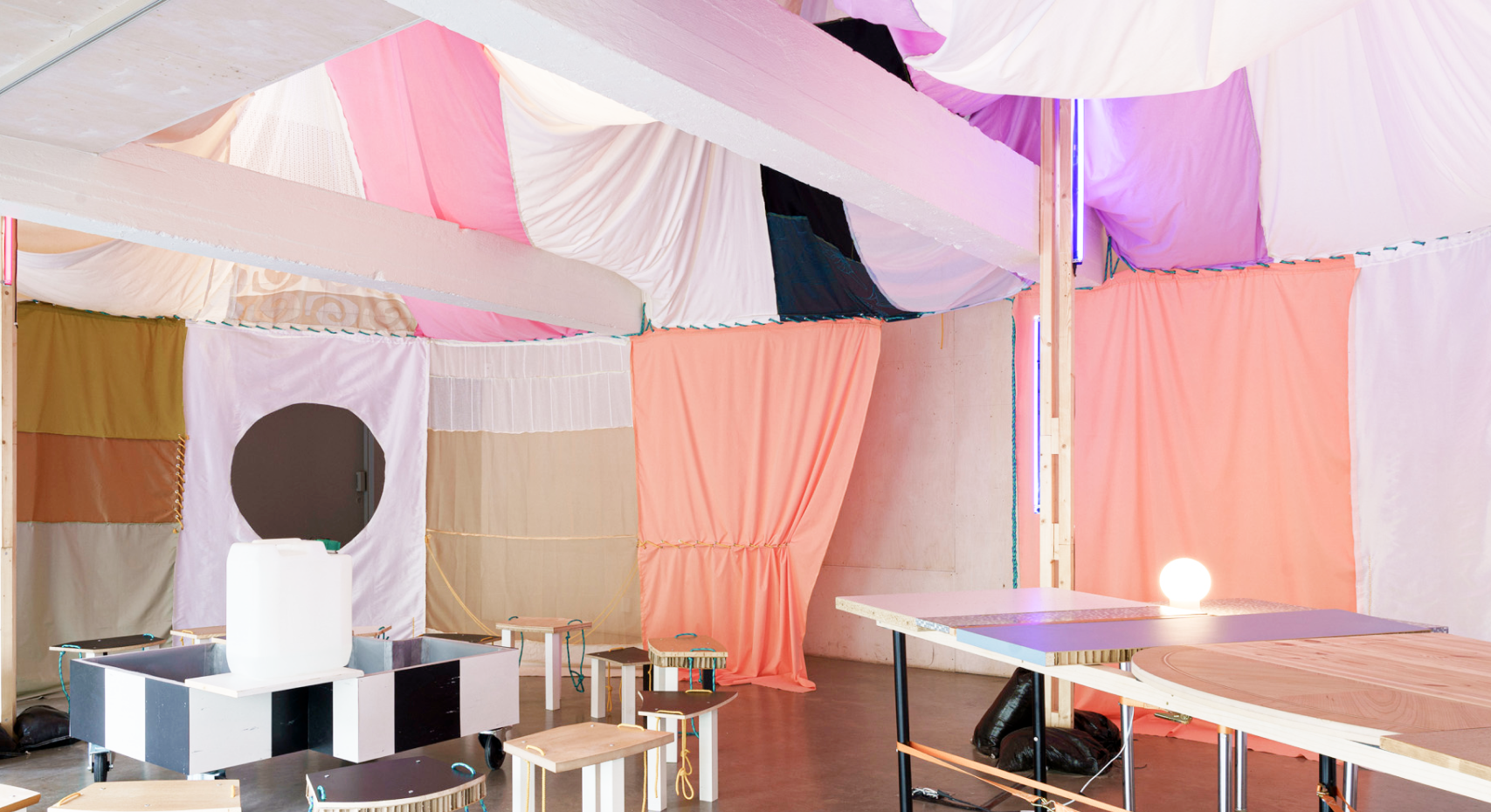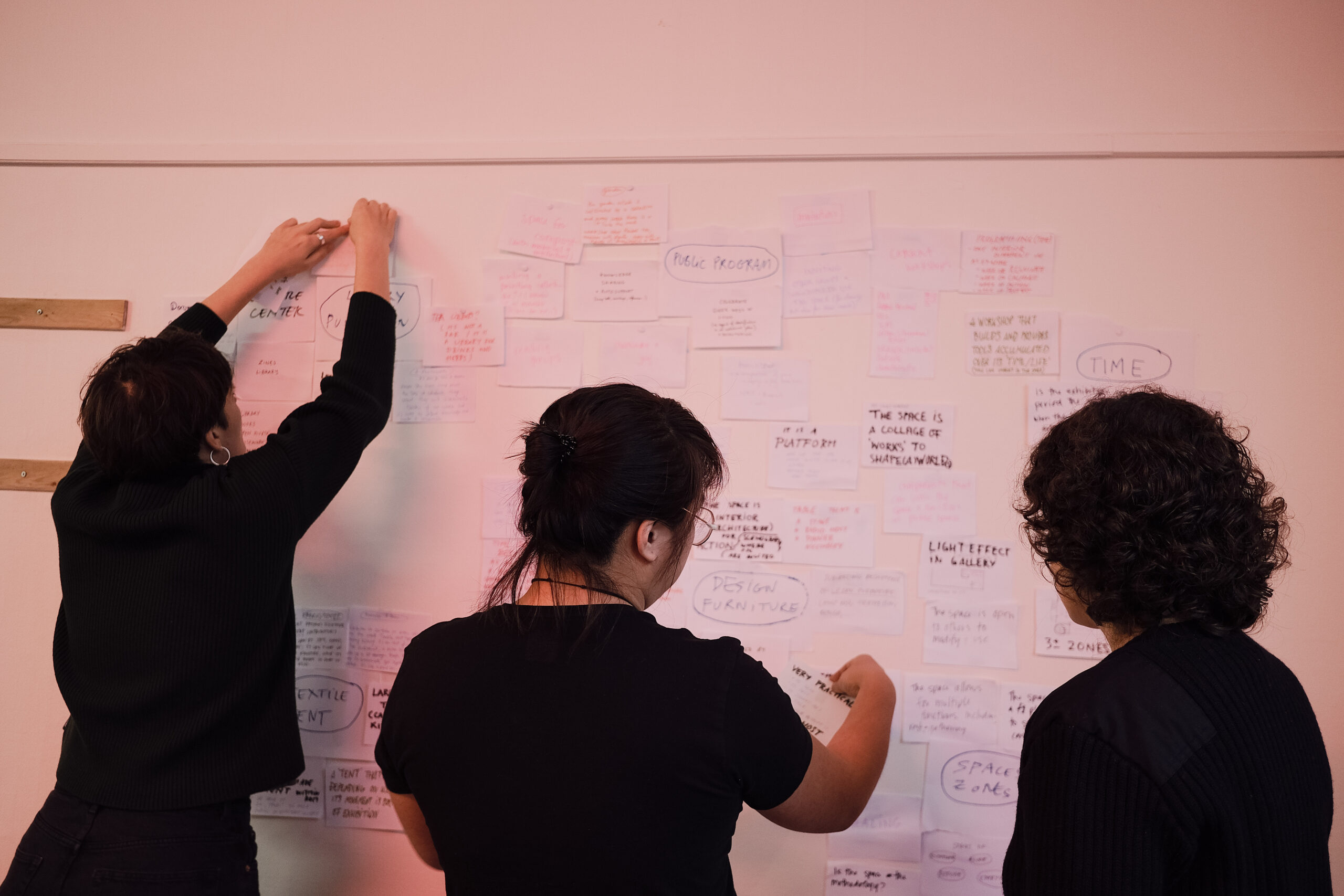Going Sideways –
Cultural Production within Fractured Systems
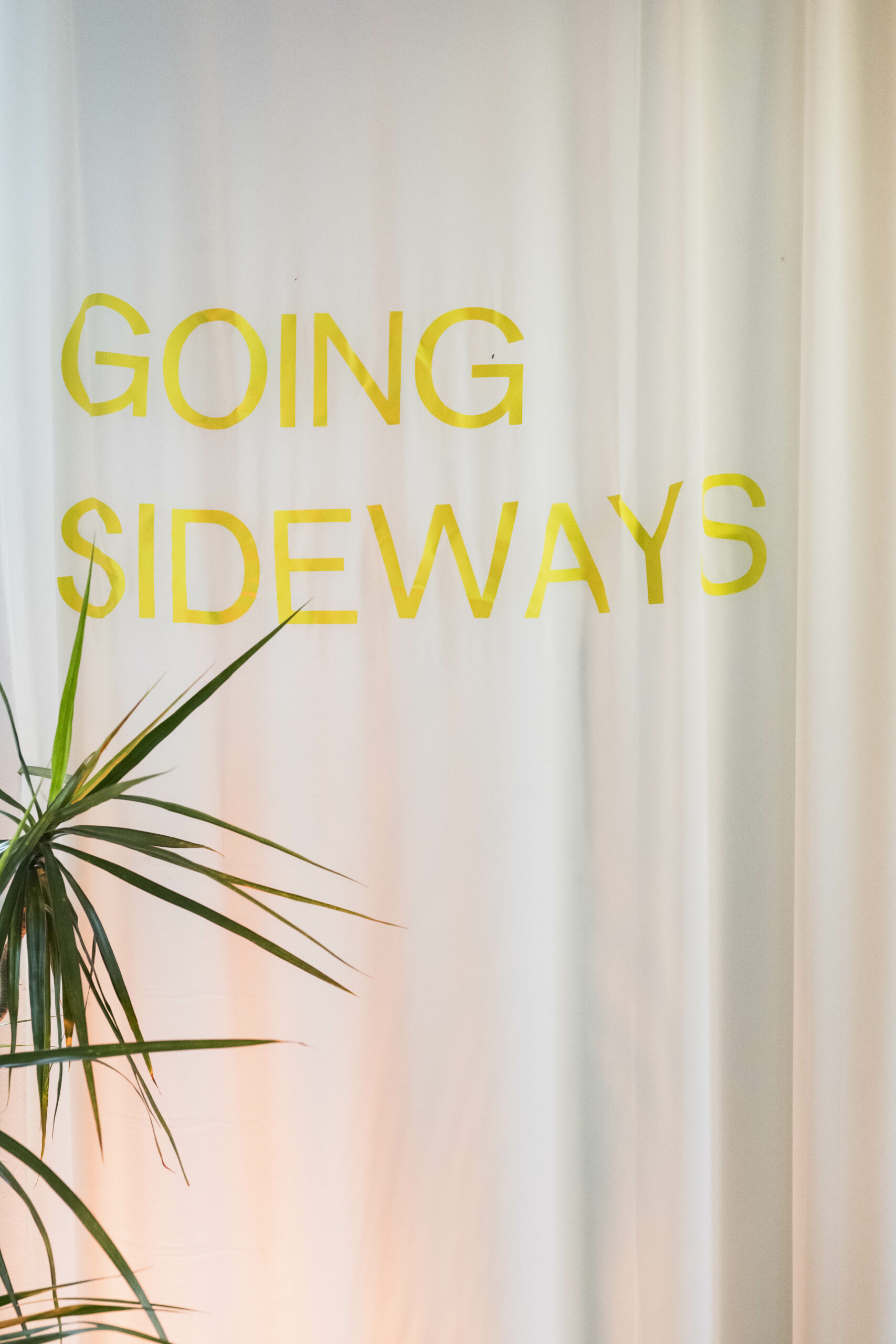
What methods involving cooperation, resistance and resilience do we need or can we imagine to create cultural practices that are sustaining, evolving, and interconnecting?
Going Sideways is a project that explores cultural production as a political and performative tool for care, resistance, and resilience amid funding cuts, censorship, and political fractures in Europe and its implication on transnational collaborations.
We are currently experiencing a wave of funding cuts, cancellations, censorship, and political fractures in European contexts and its effect on transnational collaboration. Going Sideways is the aim to start a conversation on the current status quo of cultural production. The program invites situated visions and perspectives on the adaptation of strategies, to ensure a continuation of artistic practices and transnational collaboration despite the socio-political frameworks in European contexts. What kind of spaces for culture and artistic expression do we need that are representative of our social fabrics? The project Going Sideways explores methods and tools of artistic expressions that emerge from the urgencies of the political present, from feminist, intersectional, queer, and anti-discriminatory practices.
The project features two formats:
The SOUNDPIECE is a collage of voices from cultural practitioners, showcasing diverse perspectives in an installation at the festival center.
The discursive event includes workshops, a performative dinner, and embodiment practices, inviting the audience to explore alternative methods of cooperation, resistance, and care through different situated knowledges.
Going Sideways is presented at Oktoberdanse 2024 by BIT Teatergarasjen, at Hordaland Kunstsenter, Bergen.
Credits
Event Participants: Natascha Nassir-Shahnian , Alessandra Pomarico, Saula Garcia Lopes (aka La Saula), Bek Berger.
Soundpiece Voices: Alessandra Pomarico, Bek Berger, Emmanuel Ndefo, Karoline Skuseth, Lena Kollender, Nikhil Vettukatil, Pankaj Tiwari, Sibonigle Oageng Msimango.
Sounddesign: Alina Anufrienko
Project Support: Sophia Kuehle
Curated by Epona Hamdan and Danja Burchard, Going Sideways is co-produced by BIT Teatergarasjen with support from the Norwegian Ministry of Culture and Vestland Fylkeskommune.
Natascha Anahita Nassir Shahnian facilitation practice is informed of a collage of different methods she gathered in over 20 years of practice from a mix of social activism, youth work, political education, perfomance art, film making, empowerment work & process work. She loves the power of breath, connecting with the self and the universal space – and how awareness to the dance of the unconscious guides our way on what needs to come to light.
Alessandra Pomarico is a curator, writer, and educator at the intersection of arts, pedagogy, and community building. Co-founder of Ecoversities Alliance; of the artistic and pedagogic initiative Free Home Universit since 2013 , and of the radio platform Firefly Frequencies. Recent projects are The School of the We, The New Alphabet School, and Seeding~Grounding. Editor at artseverywhere.ca, she edited Pedagogies Otherwise; What’s there to learn; and When the Roots Start Moving, Resonating with Zapatismo (Archive Books 2021). Upcoming publications include The School of the We Workbook, and Unlearning and Uplearning: Free Home University at 10.
Bek Berger (b. 1988) is an artist, curator and dramaturg originally from Australia, based now between Berlin and Riga, where from 2020 to 2024, she was curator of the International Festival of Contemporary Theatre, Homo Novus. Bek’s practice binds curiosity with innovation in order to design new models of connection, collaboration and reciprocity between artists and communities, across borders and art forms. Her expertise lies between festival making, dance dramaturgy and karaoke. In the last years she has instigated a number of large international collaborations such as Baltic Take Over Helsinki (LV, LT, EE, FI), The Shake Down with Rosendal Theatre (LV, NO), The Festivals Path with ANTI festival (LV, FI). As an artist she is currently concerned with exploiting magic, making new conditions for togetherness and improving the performing arts with pleasure centered design.
Saúl García-López aka La Saula is a performance artist, radical performance director, scholar, and pedagogue. He serves as Professor of Performance at the Norwegian Theatre Academy and co-artistic director of La Pocha Nostra. Saúl is also the co-author of La Pocha Nostra: A Handbook For The Rebel Artist in a Post-Democratic Society. His multidisciplinary artistic work spans body, text, and performance, challenging assumptions of cultural representation through the embodiment of simultaneous and contradictory identities. His research and practice focus on performance pedagogy, indigeneity, gender, postcoloniality, and decolonial theory, exploring the intersections of acting, performance theory, and indigenous strategies.
Pankaj Tiwari is a contemporary artist, performance maker, and Curator from Balrampur, India, currently based in Amsterdam. His works bring Eastern perspectives into the Western discourse on sociopolitical issues. Sustainability and connection to the East are some defining topics in his work. In the past and present, Pankaj’s works have been invited and supported by multiple festivals and production houses. A few of them include DESINGEL, Antwerp (23, 24) Grand Theater Groningen (24, 23, 20), Kaaitheater (24), Holland Festival (23), Belluard Bollwerk, Fribourg (23), wpZimmer, Antwerp (23), Zürcher Theatre Spektakel, Zürich (20 & 23), radialsystem Berlin, (22), Santarcangelo Festival, Italy (20 & 21), performingborderslive UK (20), Grand Theatre, Groningen (20,23) etc.
Emmanuel Ndefo (b. 1991, Kano, Nigeria) is a performance artist who uses his body as a tool to explore contemporary conversations, focusing on the metaphor of “Hacking” the human body as a network. His work, rooted in dance, performance, and installation, draws from both formal dance research and traditional African rituals, as well as urban dance styles like hip-hop and krump. Ndefo has received the African No Filter Storytellers Fund (2021) and the ACCR Odyssée Artist Grant (2022). He has performed and exhibited at institutions including Tate Modern, Berlin Biennale, and Kampnagel Hamburg. Notable works include “Traces of Ecstasy” and “The Passage.”
Sibongile Oageng Khaveni Msimango is a Daughter, Sister, Rakgadi, Yoga Instructor and Practitioner. She is an arts researcher, arts administrator and cultural practitioner focusing on writing, translation, curation, public programming and urban practices. Her work looks at the role of archives and language in shaping collective consciousness, the possibilities of creative production and circular economies in the urban environment as well as artistic research on structures and systems that govern cultural activity in African capital cities.
Nikhil Vettukattil is an artist living and working in Oslo. Using a range of media such as sound, installation, performance, text, sculpture, and video, their practice questions modes of representation and image-making processes in their relation to lived experiences. They studied at Central St. Martins in London and the Center for Research in Modern European Philosophy (CRMEP). Recent exhibitions include Hothouse Flowers, Podium, Oslo (2024), Postproduction, Studiengalerie 1.357 Goethe University, Frankfurt (2023), Contaminators (with Halvor Rønning), FELIX GAUDLITZ, Vienna (2023) and Claustrophobia Alpina III, Ford, Geneva (2023). They are a founding member of The Institute for Scene Experiments. Forthcoming solo presentations include Oslo Kunstforening, Oslo, Arcadia Missa, London and AGIT, Berlin.
Karoline Skuseth (b. 1983) is a curator at BIT Teatergarasjen, where she has been responsible for discourse since 2011. A graduate of the University of Bergen and the Institut für Angewandte Theaterwissenschaft in Giessen, her work centers on the political potential of the performing arts, exploring how they can challenge societal power structures. With extensive experience as a critic, moderator, and writer, Skuseth is dedicated to amplifying voices and bodies that are often marginalized in mainstream spaces. She has held several board positions within the performing arts and is a co-founder and member of the artist collective Walk of Shame (2012–present) and the punk band Scampi Chips Dip & Campari (2007–present).
Alina Anufrienko is a non-binary composer, sound researcher, and cellist from Omsk, Siberia. They have collaborated with Moscow’s Teatr.doc, the Gulag Museum, and the now-banned Novaya Gazeta. In 2022, Alina founded the Laboratory of Documentary Music, exploring the intersection of music and documentary art forms. Fleeing Russia due to the Ukraine invasion and LGBTQ+ repression, they secured a humanitarian visa and became an artist in exile.
In 2023, Alina composed Exile Promenade, premiering at the Berliner Festspiele, and created Resist and Love, debuting at the Eclat Festival Neue Musik. Their work often explores resistance, memory, identity, and LGBTQ+ activism. Based in Berlin, Alina continues to collaborate with diverse artists, using art as a means of societal dialogue, resistance, and healing.
Epona Hamdan has been a creative producer, curator, writer, facilitator, and outside eye in live arts since 2016, based in Berlin. Her work spans local independent scenes and international collaborations, shaped by her experience as a German-Lebanese queer identity and mother. Hamdan’s practice focuses on anti-colonial culture production, critical pedagogies, and decentralizing knowledge and access, viewing art as a space for counterpublics. In 2022, she was an emerging curator for the 12th Berlin Biennale’s “It speaks to me” program. Her Berlin Senate-funded research on decolonial curatorial methodologies, explores these practices within European institutions. Hamdan has worked with Rimini Protokoll as a creative arts producer, and as a curatorial assistant and manager at Spielart Theaterfestival. She has managed the Akademie der Autodidakten, initiated community projects, and is involved in the Intersectional Feminist Leadership Platform in Live Arts, Helsinki, and the produktionsbande network for performing arts producers..
